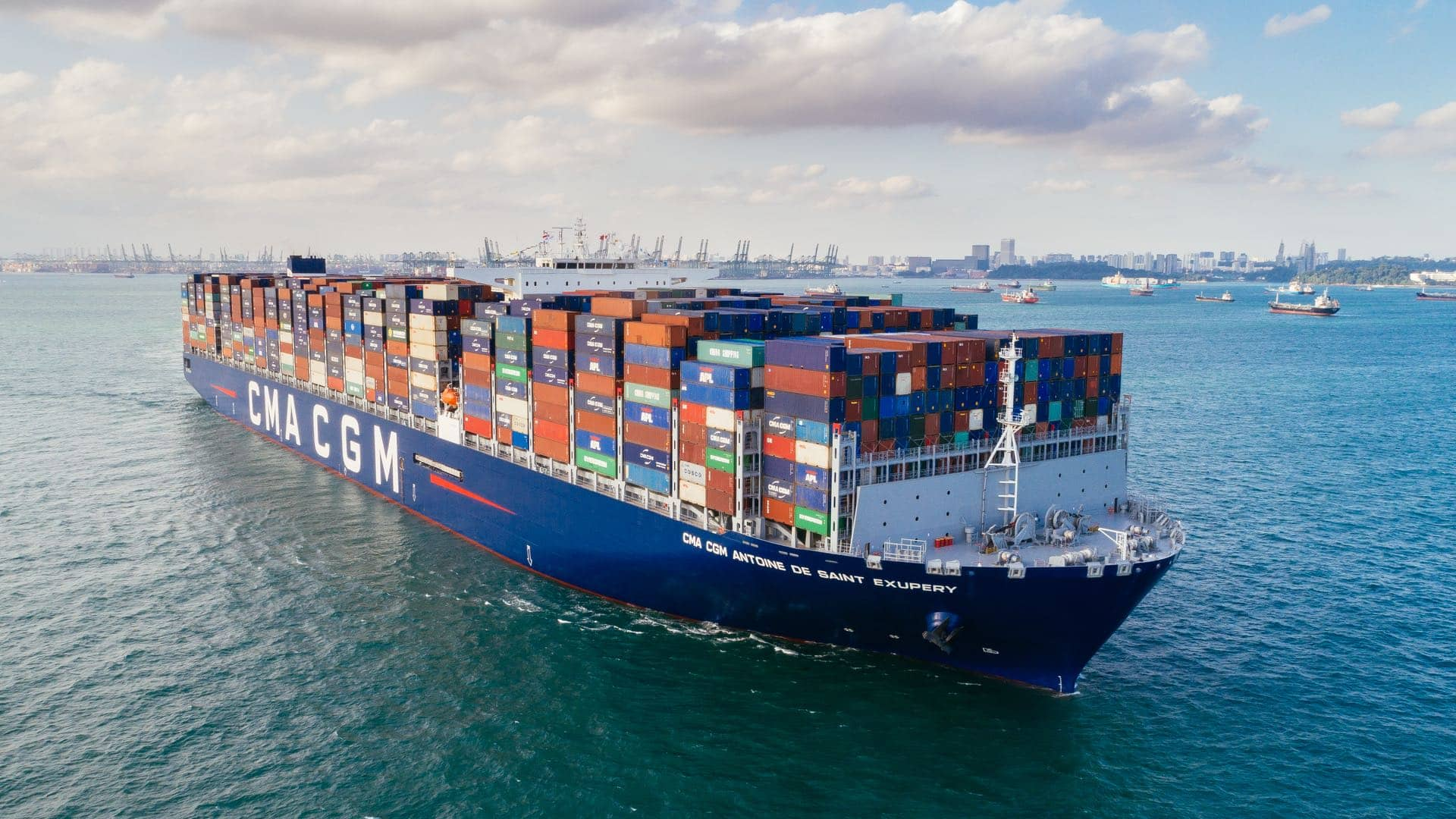Alphaliner data shows that despite the slowdown in growth in 2025, large global container shipping companies are still expanding their capacity. Mediterranean Shipping Company (MSC) still ranks first in the world, and CMA CGM has exceeded the 4 million TEU capacity mark for the first time.

According to Alphaliner’s report, in the first half of 2025, the global container vessel fleet will see an increase in capacity of 1.18 million TEU, representing a growth rate of less than 4%, which contrasts sharply with the significant growth trends of recent years. However, order volumes remain strong. According to Alphaliner’s calculations, the global total capacity in the container vessel sector reached 32.7 million TEU, with the combined deadweight tonnage of 7,336 operational vessels totaling 388 million tons.
The report points out that in the first half of 2025, nine of the top ten global container shipping companies have added new capacity, with an average increase of about 4%. Due to regional geopolitical issues, Zim is an exception, with its capacity decreasing since the beginning of the year.
Taking MSC as an example, its capacity growth is predictable, accounting for 31% of the total growth in the container ship sector, with a total capacity of 6.6 million TEU, continuing to widen the gap with other shipping companies. In contrast, Maersk remains at 4.6 million TEU, while CMA CGM has broken through the 4 million TEU mark for the first time.
Alphaliner pointed out that since the beginning of this year, MSC’s fleet size has increased by 365,173 TEUs through new ship deliveries and second-hand ship transactions. By 2025, MSC has received 25 new vessels (316,691 TEUs), including 12 new Panamax container vessels (15,400-16,200 TEUs), further strengthening its independent route network. This expansion is not a major breakthrough for MSC. The company has maintained the strongest growth momentum for many years, with growth rates of 12.3%, 22.0%, 7.5% and 10.7% in 2024, 2023, 2022 and 2021 respectively.
The container shipping company with the fastest growth in capacity is Japan’s Oceanic NetLink Shipping (ONE), with an increase of nearly 6%. Alphaliner pointed out: “This year marks a strategic shift for ONE, as the company begins to take delivery of new capacity.”
In addition, CMA CGM is also worth paying special attention to, with a 4% increase in capacity. Alphaliner pointed out that as of early July, CMA CGM’s capacity had reached 4 million TEU, with a fleet of 683 owned or leased container ships.
Alphaliner calculations show that CMA CGM has expanded its capacity fourfold over the past 16 years, further consolidating its position as the world’s third-largest container shipping company. The company achieved a capacity of 1 million TEU through the acquisition of ANL, American President Lines, U.S. Lines, and several small regional shipping companies.
The container ship market faces uncertainty in the short term due to geopolitical factors and the tariff policy of US President Trump. In its weekly update, Xeneta pointed out that container ship freight rates continue to fall, and said that “shipping companies are currently deploying more capacity than is needed to meet shipper demand.” However, the report also pointed out that “in early July, the US East Coast region saw a more serious overcapacity phenomenon.”
Despite these concerns, shipping companies are continuing to push ahead with their growth plans. Alphaliner reports that Mediterranean Shipping has the largest order book, with a total of 135 vessels under construction, totaling 2.2 million TEU. CMA CGM has 95 vessels under construction totaling 1.5 million TEUs.
Maersk, ranked second globally, has clearly stated its intention to maintain stable transport capacity, which means that CMA CGM is likely to surpass Maersk (4.6 million TEU) to become the second largest container shipping company in the industry after the delivery of new vessels. Currently, CMA CGM is only 600,000 TEU behind Maersk.


